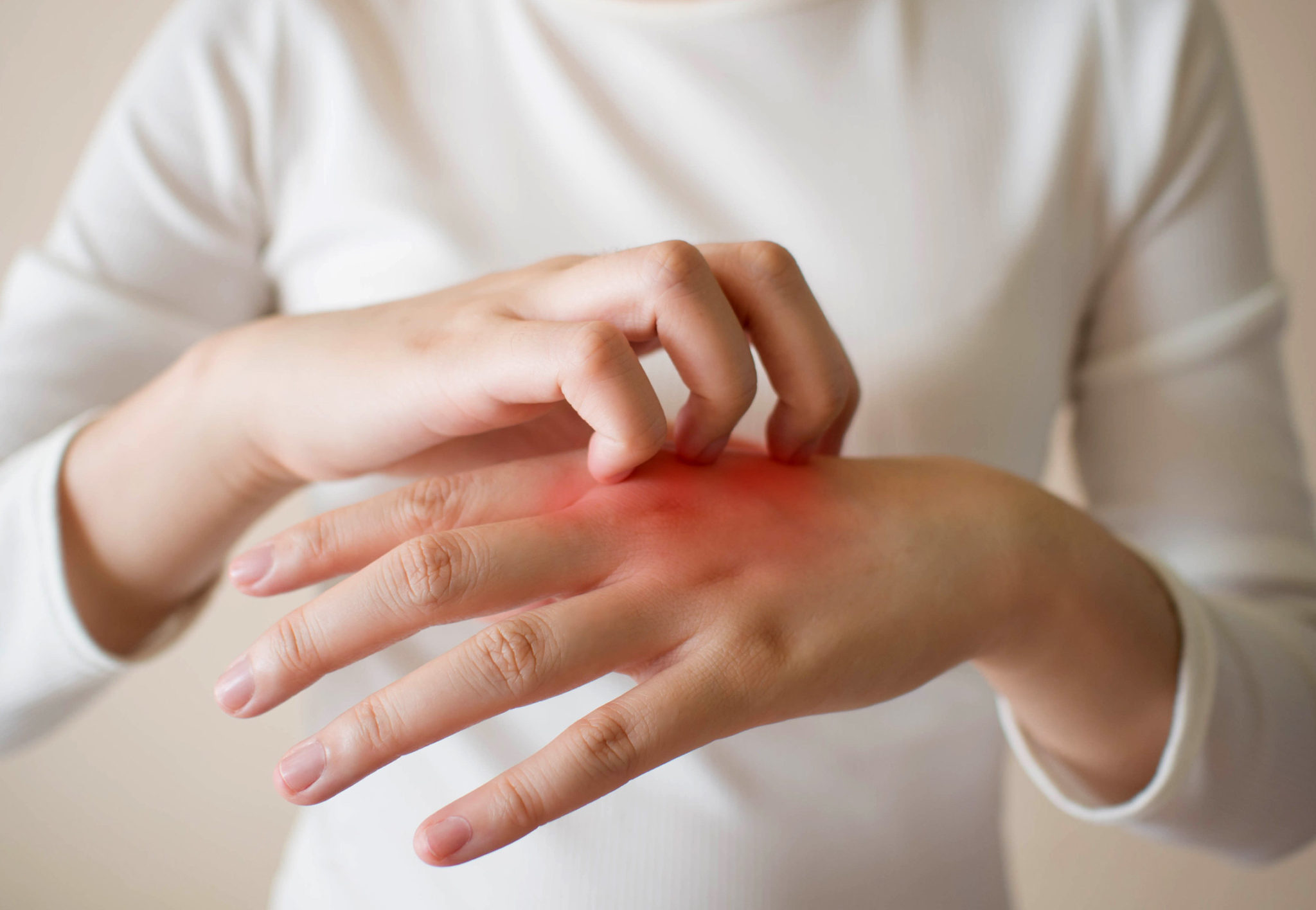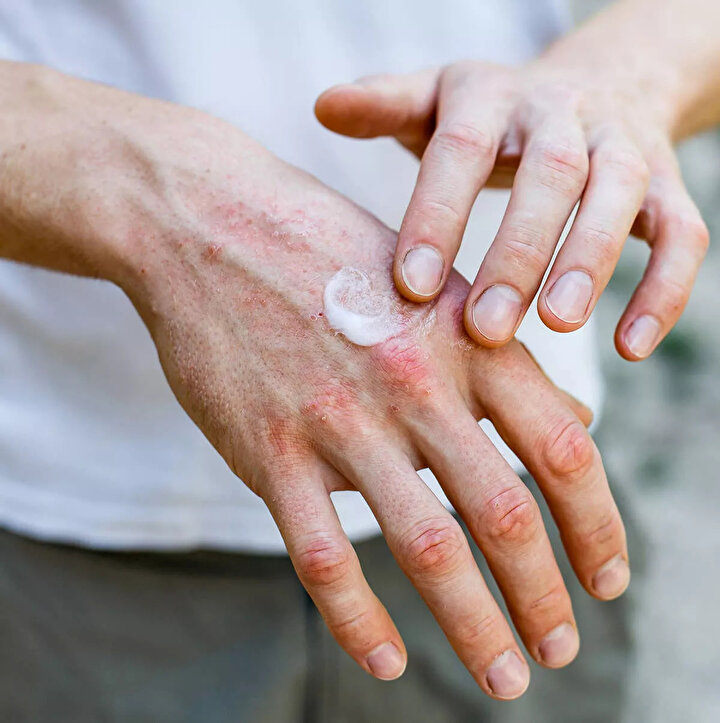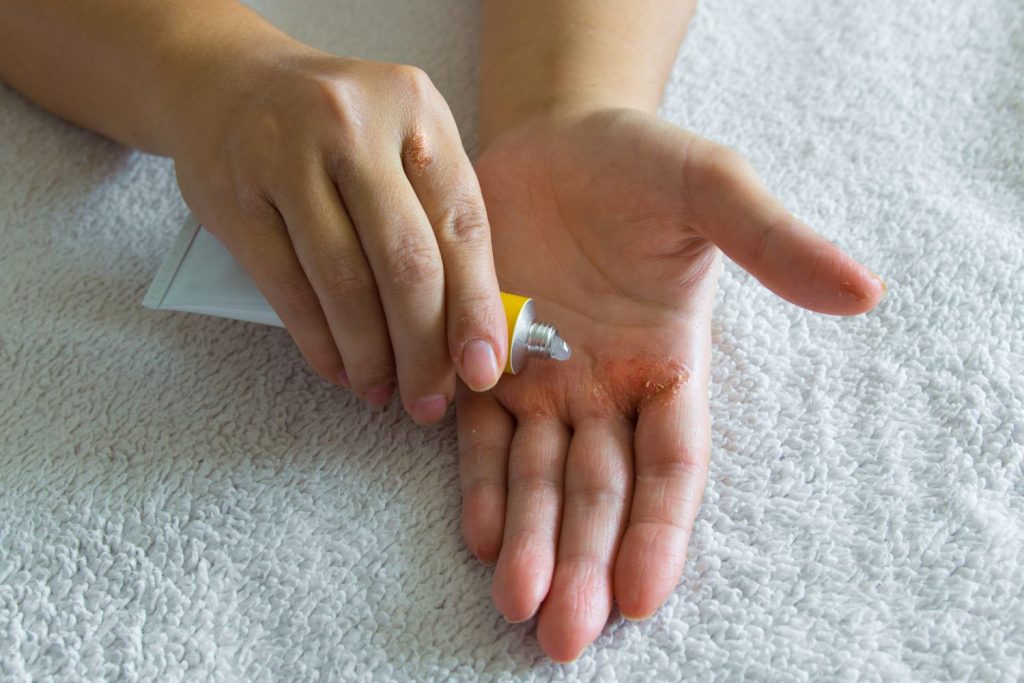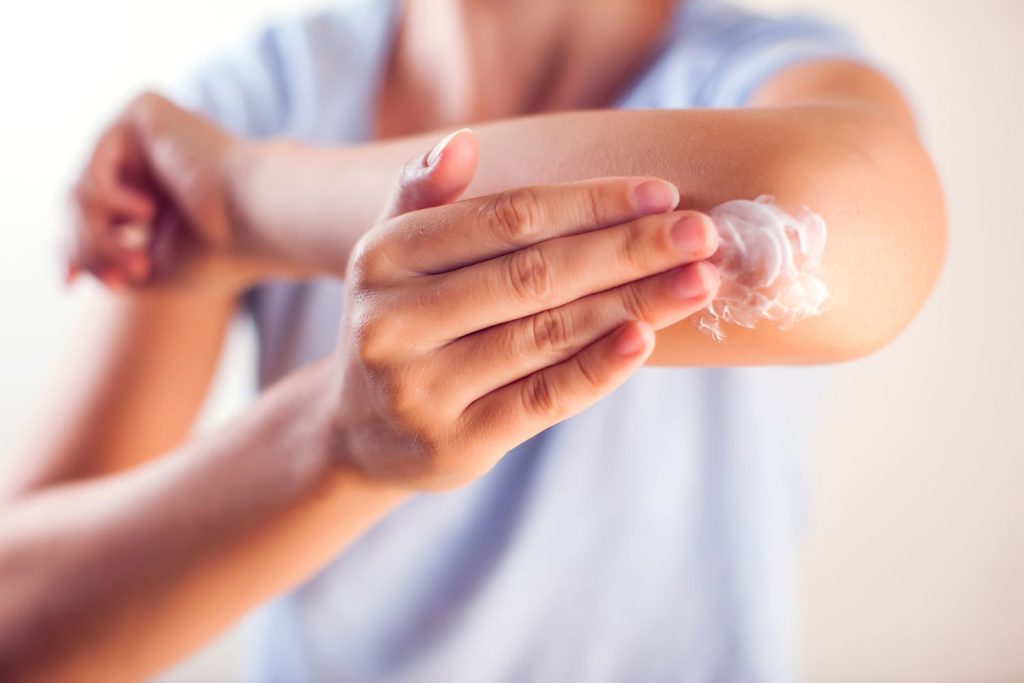Eczema

What is Eczema?
Eczema, also known as atopic dermatitis, is a chronic inflammatory skin condition characterized by itchy, red, and inflamed skin. It is most common in children but can develop at any age. Eczema often occurs in individuals with a family history of allergic conditions like asthma, hay fever, or other skin allergies.
Symptoms of Eczema
- Itching (pruritus) – The hallmark symptom, which can be severe and is often worse at night.
- Red, inflamed skin – Skin may appear reddish, dry, and irritated.
- Dry, scaly skin – The skin often becomes rough, cracked, and flaky.
- Rashes – These can appear in patches, commonly on the face, neck, arms, and behind the knees.
- Blisters – In more severe cases, small fluid-filled blisters may form.
- Crusty or weeping skin – If the rash becomes infected, it may leak fluid or form crusts.
- Thickened skin– With chronic eczema, the skin may thicken (lichenification) due to constant scratching and rubbing.

Improved Skin Texture
Improved Skin Tone and Clarity
Combatting Acne and Blackheads
Boosting Collagen Production
Minimal Downtime and Quick Results
Treatment for Eczema
There is no cure for eczema, but treatments aim to manage symptoms, reduce flare-ups, and prevent infection. Treatment options include:

Moisturizers:
- Emollients or moisturizers are essential in eczema care to help hydrate and protect the skin barrier.
- These should be applied frequently, ideally after a bath, while the skin is still damp.
Topical corticosteroids:
- Steroid creams (e.g., hydrocortisone) are commonly prescribed to reduce inflammation and itching during flare-ups.
- Topical steroids vary in strength, from mild to strong, depending on the severity of eczema.
Topical calcineurin inhibitors:
- Medications like tacrolimus (Protopic) ointment or pimecrolimus (Elidel) cream are alternatives to steroids and help reduce inflammation, especially in sensitive areas like the face or groin.
Newer Topical steroid-free therapies
- roflumilast (Zoryve) cream, tapinarof (Vtama) cream , and, ruxolitinib (Opzelura) cream are also alternatives to steroids, reduce inflammation and are appropriate for application in sensitive areas of the skin.

Antihistamines:
- Oral antihistamines (e.g., cetirizine or loratadine) may help control itching and improve sleep.
Oral medications:
- In severe cases, oral corticosteroids or immunosuppressive drugs may be prescribed.
- Biologic Injectable Therapies: are newer treatments for moderate to severe eczema, targeting specific parts of the immune system to reduce inflammation, e.g , dupilumab (Dupixent),tralokinumab (Adbry) and lebrikizumab (Ebglyss).
- Oral Biological Therapies such as JAK inhibitors, e.g., abrocitinib (Cibinqo)


- If eczema becomes infected, antibiotics may be necessary, either topically or orally.
- IIdentify and avoid irritants such as harsh soaps, detergents, extreme temperatures, stress, or allergens like pollen or pet dander.
- Wearing soft, breathable fabrics like cotton can reduce irritation.
Why choose Aesthetic Dermatology
Accurate Diagnosis – Eczema can resemble other skin conditions, so we can help differentiate eczema from conditions like psoriasis, fungal infections, or other allergic reactions.
Customized Treatment Plan – They can recommend the most effective treatments based on your specific symptoms and severity, including stronger prescription medications or advanced therapies if necessary.
Management of Chronic Eczema – Since eczema is often a long-term condition, we can help you develop a strategy for managing flare-ups and preventing long-term damage or scarring.
Avoiding Complications – Eczema can lead to complications such as skin infections or permanent skin changes. We can prevent or treat these issues before they worsen.
Infection Control – Eczema often breaks the skin’s barrier, making it more vulnerable to infections. We can provide guidance on keeping the skin healthy and prescribe antibiotics or antiviral treatments if an infection occurs.
Guidance on Skin Care – We offer expert advice on choosing the right moisturizers, cleansers, and skincare routines that will not irritate the skin.
Eczema is a chronic condition that requires ongoing care. Coming to Aesthetic Dermatology can help control symptoms, prevent flare-ups, and ensure the skin remains as healthy as possible.
Get in Touch
Do Not Hesitate




